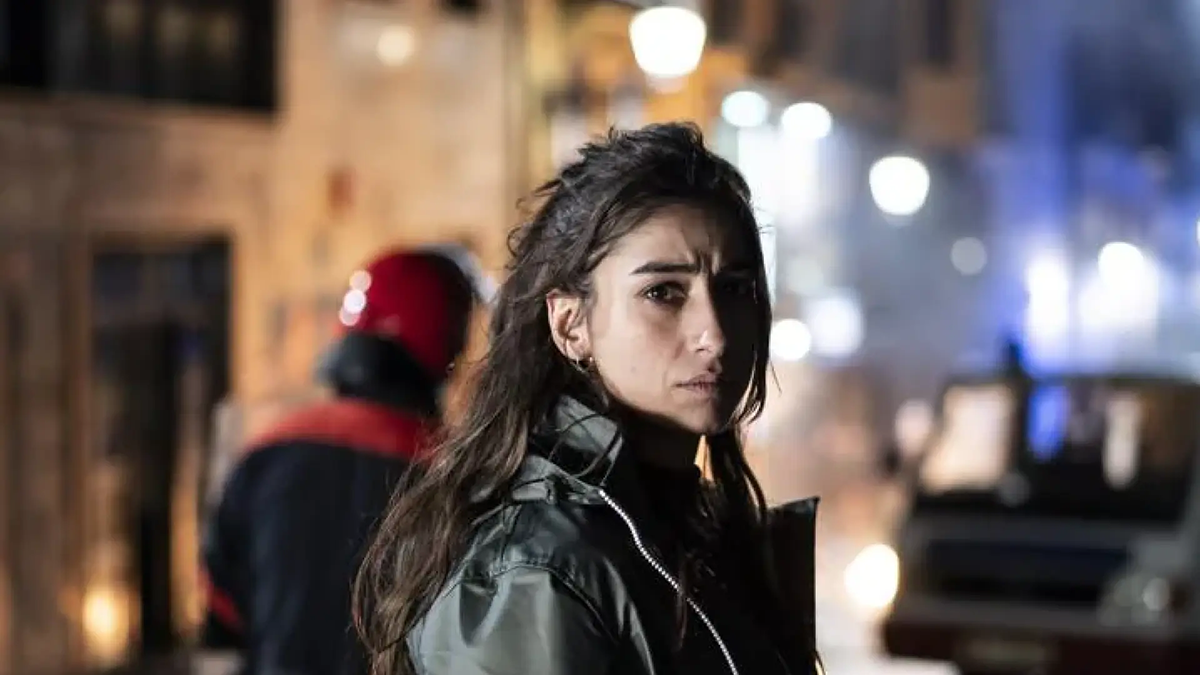“I want to see the end of this. I want it to be me who’s on the front line.” Spoken with a fierce conviction, undercover agent Mónica Marín (played by Carolina Yuste) reminds her boss, police Inspector, Ángel Salcedo (Luis Tosar), she’s unequivocally prepared to confront both a machista society and the immense danger ahead. So begins the psychological drama thriller La Infiltrada, the Spanish film nominated for 13 Goya Awards in 2025 (including Best Film, Best Director, and Best Original Screenplay).
The project is based on the true story of police officer Elena Tejada (pseudonym, Aranzazu ‘Arantxa’ Berradre Martín) who spent eight years secretly infiltrating Euskadi Ta Askatasuna (ETA), the armed nationalist, leftist organization seeking independence from Spain. For those of us only faintly familiar with the region’s history, here’s a brief recap:
During the late 1960s, under Francisco Franco’s brutal dictatorship in Spain, ETA – translated as Basque Homeland and Liberty – became an infamous militant group fighting for the liberation of the Basque region, which spans northern Spain and southeastern France.
Classified as a terrorist organization by Spanish, French, and British authorities, ETA spent nearly 60 years targeting politicians, military, and/or police-affiliated persons, including their families. It is reported their attacks claimed the lives of 856 people and injured hundreds of others between 1968 and 2018.
On the other side of the nationalist debate, there’s a different story – one of armed struggle against the Spanish state and its repressive Franco regime. With a distinct language (Euskera), unique customs, and traditions, the Euskaldunak (Basque Peoples) are culturally and ethnically different. They do not consider themselves Spaniards, nor are they. Contrary to what some have implied, ETA’s secular nationalism is unaffiliated with the Islamist fundamentalist group al-Qaeda. And it has been reported that many of ETA’s attacks were “preceded by a warning call, allowing people to evacuate before the explosion.”
Here’s the thing about La Infiltrada that left me with mixed feelings – as a staunch advocate of Puerto Rican independence, I keep turning to the expression, “One person’s terrorist is another person’s freedom fighter.” I began reflecting on iconic fights for liberation like the Palestinian guerrera and leader Leila Khaled, as well as Boricua warriors, Lolita Lebrón and Filiberto Ojeda Ríos. For many of us, they represent the struggles of oppressed peoples. To be clear, I’m certainly not advocating for the killing of innocent civilians – which is what the reports indicate ETA did. Still, throughout the film I kept wondering: Is there something the director Arantxa Echevarría and her team intentionally omitted?
Set against the backdrop of 90s Spain, we watch as agent Marín (who goes by the alias, Arantxa) discusses with Inspector Salcedo (El Inhumano) the high-risk operation to dismantle one of ETA’s most brutal divisions, the Commando Donosti. At a meeting in an empty, close-to-closing restaurant, we catch the disbelief in the Chief of Police’s voice as he selects the small photo of the only woman (Marín/Arantxa) of the case’s five potential agents. “You’re joking by including this girl among them?” Salcedo decides to prove his point with a concrete example: motioning to the young woman employee sweeping the floor just a few feet away, “If I told you she is an undercover agent, would you believe me?” Referring to Marín, he reminds his incredulous superior that “As a woman, no one will be suspicious of her.”
As it turns out, he’s spot on.
For nearly a decade, agent Marín faces life-threatening situations as she escorts high-level ETA members to secret locations, crossing the border into France to do so, actively participating in riots during pro-Basque independence protests, “celebrating” the murders of fellow police colleagues, and even living for nearly two years with ETA leaders.
Two scenes from La Infiltrada linger vividly in my mind.
In one, seemingly repulsed by her cohabitation with two of the groups’ members (one with whom she has consensual sex with), we watch as she intensely brushes her teeth. Sticking her tongue out, she scrubs the top of it with aggressive intensity and spits the mixture of saliva and toothpaste into the sink. That visual had a powerful poetic impact on me, recalling as it does that the mouth is a portal, a literal and metaphorical gateway to what we digest (or sometimes expel). By vigorously scraping her tongue, Mónica is attempting to wipe away the filth she wilfully partook in (i.e., the lie/double life she is living for the ‘greater good’ of her country).
In another scene, Marín, sits naked in the bathtub, scrubbing her breasts and legs. Her angst is palpable as it jumps off the screen onto our laps, the camera capturing her profile in intimate detail. Opening her mouth, she lets out a silent scream. Of course, by this point, the audience fully understands the danger Marín is facing. Not only is she living with two dangerous men deemed terrorists by her country’s authorities, but she also has crossed the line into sexual intimacy with one of them.
It’s difficult not to empathize with her harrowing ordeal as she tries to dismantle part of ETA from within. I enjoyed La Infiltrada and can appreciate why it received those 13 Goya award nominations, as well as the Premio Forqué’s Best Actress Award for Carolina Yuste, plus Premios ASECAN y CYGNUS for Best Picture. Its accolades speak to the film’s undeniable emotional impact and artistic achievement.

